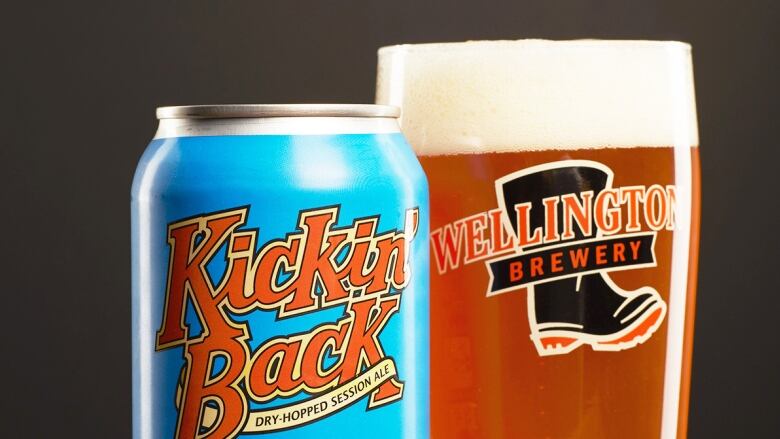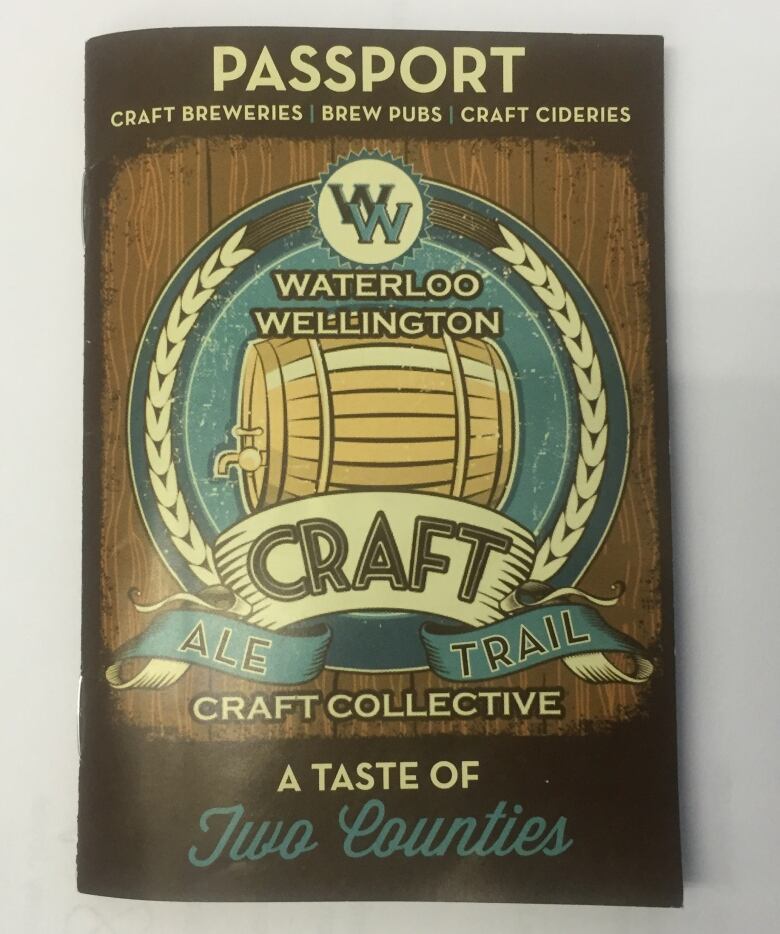Celebrate craft beer week in Waterloo-Wellington with a bit of history
Craft Beer Week runs from August 13-20 in Waterloo Region and Wellington County

August 13-20is "Craft Beer Week" in Waterloo Region and Wellington County, according to a group of businesses who have joined forces to promote the local beer industry and draw attention to our brewing past.
- More food columns from Andrew Coppolino
- Yeast entrepreneurs bring taste of Guelph to brewing
- Future brewers study 'field to foam' at Niagara College teaching brewery
The Waterloo Wellington Craft Collective (WWCC) is a network of 12 breweries and one cidery from New Hamburg to Kitchener to Guelph. They've created a passportthat is stamped when you visit a brewery. If you get all the stamps,you have a chance to win a prize.
Blazing new beer trails
That there are 13 participants on the trail is a testament to the industry's growth, according to Lee Brooks of Kitchener's Descendents Beer & Beverage Company, a WWCC member.

"There are breweries that exist now where 10, and even five years ago, there were none," Brooks said.
Alex Szaflarska of Kitchener's TWB Cooperative Brewing, also a WWCC member, sees the group's work as itself trailblazing.
"Kitchener and Waterloo and the Waterloo-Wellington area have become a great presence on the wider Ontario beer scene. We're doing that in a way that shows it's possible to work together while growing independently," Szaflarska said.
While the image of a path is smart marketing and will likely introduce beer aficionados to new in breweries, the so-called "ale trail" also leads to an archeological discovery and recovery of our original beer landscape.
An archeology of brewing
Brewing in Waterloo Region and Wellington County dates to the mid-1800s with, among others, Preston's Rock Springs Brewery, New Hamburg's Rau Brewery, Silver Springs Brewery in Guelph and the Rebscher Brewery in what was then Berlin, Ont.
Stacy McLennan, Collections Curator at the Waterloo Region Museum, says that George Rebscher started with an inn but quickly saw the entrepreneurial value in building a brewery.
"George owned the Farmers' Inn at King and Queen Streets, and built the brewery around 1840 behind it to supply beer to the inn. Peter, his son, took over the business around 1850, sold off the inn and expanded the brewery," McLennan said in an email.
Breweries then were lucrative businesses that employed the community and supported local economies while producing beer for particular markets of consumers. That's the way it is today.
"This area geographically and historically has always been really prolific in brewing, distilling and agriculture in general," said Jim Murphy, CEO of Elora Brewing Company, a WWCC brewer. "So in a lot of ways, this is a return to our roots, a return to our historically strong positions in terms of artisanally crafted local products, and beer fits into that."
Breweries and economic development

George Sleeman was Guelph's first mayor and president of the Guelph Maple Leafs baseball team.Sleeman, no doubt, saw that it made good business sense to align beer with ball parks.
He's just one example. In the mid-1800s in Guelph, there were a half dozen or so key players on the brewing scene roughly about what there are now who needed good rail transportation systems with which to distribute their beer and clean sources of water, according to historian Eric Payseur.
"Many brewers tried to replicate the excellent water conditions of well-established breweries in the U.K for the brewing process," Payseur said, adding that is what they got with the Speed River and the springs in and around Guelph.
In the 1890s, Sleeman helped fund a railway in the city, though not altruistically. "Building that public infrastructure was something that helped develop the city but also helped get his workers to the brewery faster so they could be more productive," said Payseur. "Really, the story of these early breweries in Guelph is one of economic development and the development of the City of Guelph."
Re-shaping the beer landscape
As Brooks of Descendents sees it, the ale trail cuts through the macro-breweries that have dominated the industry since the mid-1900s and leads to over 100 independent breweries in the province, including many in southwestern Ontario, and a re-discovery of our brewing history.
"I think the fact that there are craft breweries in the area operating successful community-based brewing is a re-shaping of the brewing landscape in Ontario," said Brooks.












_(720p).jpg)


 OFFICIAL HD MUSIC VIDEO.jpg)
.jpg)



























































































